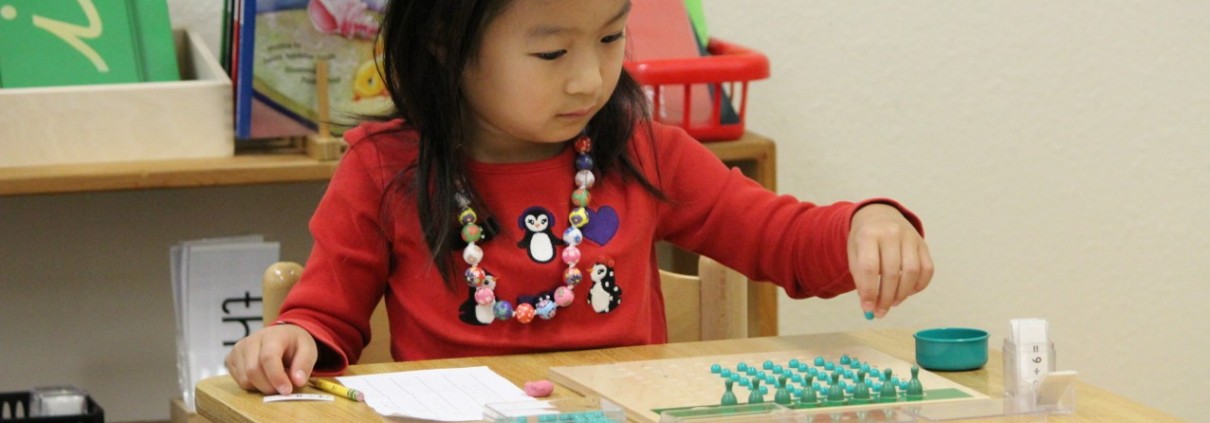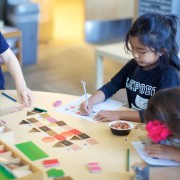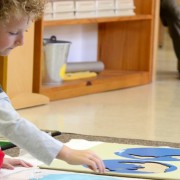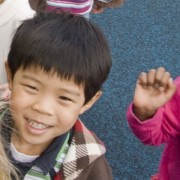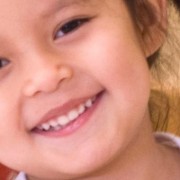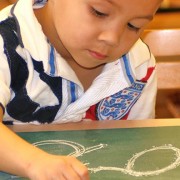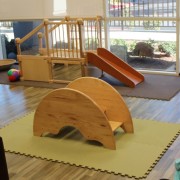The hidden benefits of your child’s third year in Montessori preschool
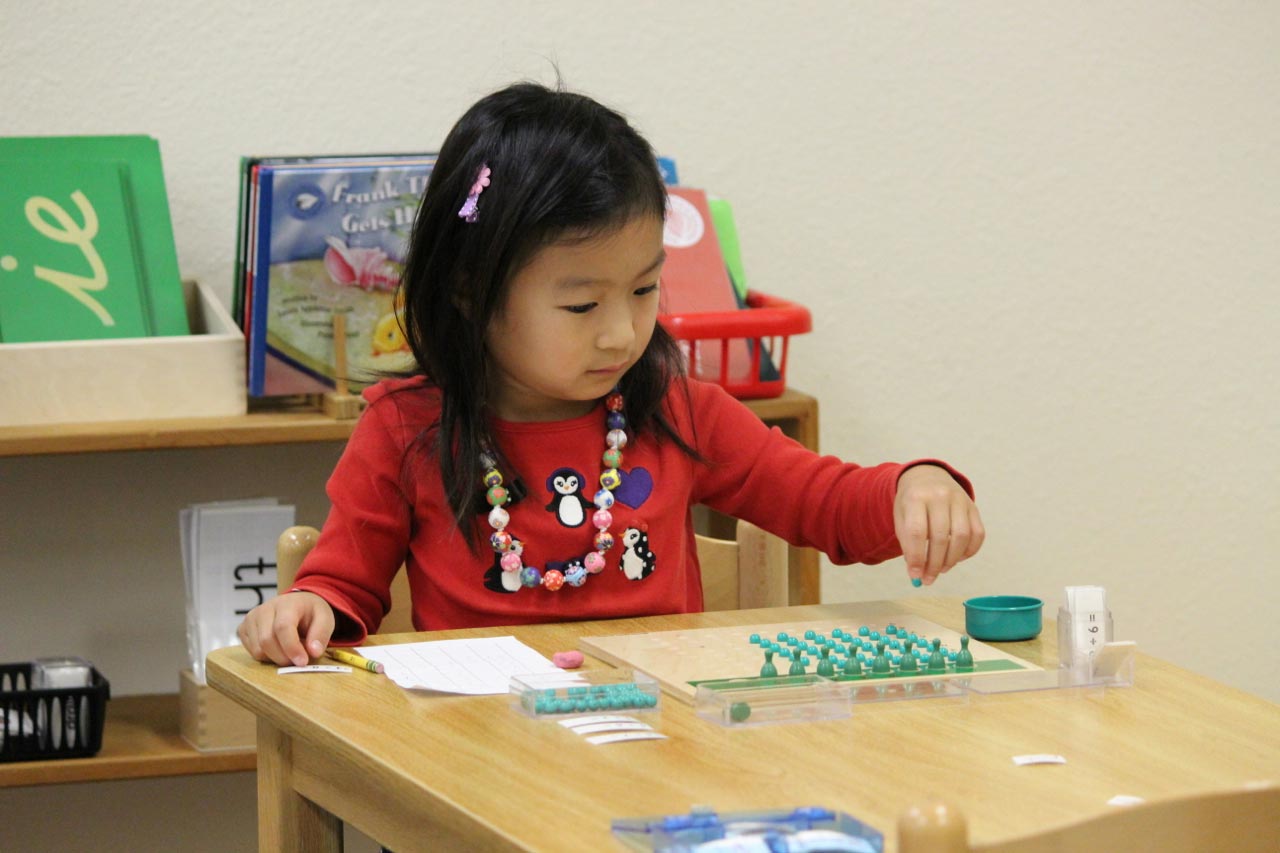
The third year in Montessori preschool has sometimes been called the cashing in year or the leap year. It’s the time when students put together all the different skills they have indirectly and directly prepared for throughout their Montessori toddler and preschool years.
Academically, the third year is often a flurry of activity. If you are the parent of a 3rd year student, you may already have noticed some of the interesting new work your child brings home: booklets of math facts practice; Books to Remember books to read to you; sentences cut into little pieces for analysis, and map shapes traced and labeled.
Students also tackle progressively longer tasks: they might spend multiple days creating booklets of different leaf shapes carefully colored and labeled; they might illustrate and author multi-sentence stories, or complete math problems using more abstract materials such as the Small Bead Frame.
In the third year of Primary, a typical Montessori preschool student achieves cognitive growth far above grade level. He goes from walking to leaping, as a Montessori mother put it. And yet, as impressive as this academic achievement is, the most important benefits of the third year in Montessori preschool may well lie elsewhere.
Over the past decade, researchers have come to question the role that cognitive skills by themselves play in a child’s success in school and life. While academics matter greatly, some researchers now say that
[w]hat matters most in a child’s development … is not how much information we can stuff into her brain in the first few years of life. What matters, instead, is whether we are able to help her develop a very different set of qualities, a list that includes persistence, self-control, curiosity, conscientiousness, grit and self-confidence. Economists refer to these as noncognitive skills, psychologists call them personality traits, and the rest of us often think of them as character. Wall Street Journal
The third year in Montessori preschool is a time when children mature in their personality traits or character. It’s the time when students become self-possessed learners, confident in their abilities. It’s where they emerge as leaders, benevolently sharing their skills with their younger peers.
After two full years, the Montessori preschool class is a familiar environment to these 5-year-olds. They know the daily routines inside and out; their teachers know them well and can readily work with their strengths and encourage them to take on challenges. They are conscious of being the oldest students in the room, having traveled the road from 3-year-old to 5-year-old.
When my daughter had just started her third year in Montessori preschool, I remember asking her what lessons she had gotten in the past week. She looked at me as though I were out of my mind. “Of course, I didn’t get any lesson this past week. Mom, it’s the first week of school, and my teachers are helping our new friends. I don’t need the teachers to tell me what to do. I just walk around class, pick my work, and do it.”
Third year students may indeed start the year by walking around the room, picking work independently but somewhat impulsively. Over time, their teacher works with them on bigger, more ambitious work, sometimes setting multi-day goals, in preparation for the increased independence and responsibility of Montessori Elementary.
But within this Montessori preschool classroom, when a child struggles a bit with these challenging tasks, she can take a step back, look around the classroom, contemplate the activities on the shelves, and observe the work that younger friends do. She can realize that I know how to do all that!
No, a 6-year-old does not explicitly think this thought. But she knows that at some point, for example, it was challenging for her to form a letter, just like it is now for this 4-year-old friend—and that with hard work, she mastered it. She has come to expect that the tasks she tackles in her Montessori preschool classroom may require persistence and repetition to master. She knows that she’ll make mistakes—spill water or even break a beautiful ceramic bowl—but that these mistakes are okay, and that we can learn from them, move on, and still have fun in the process.
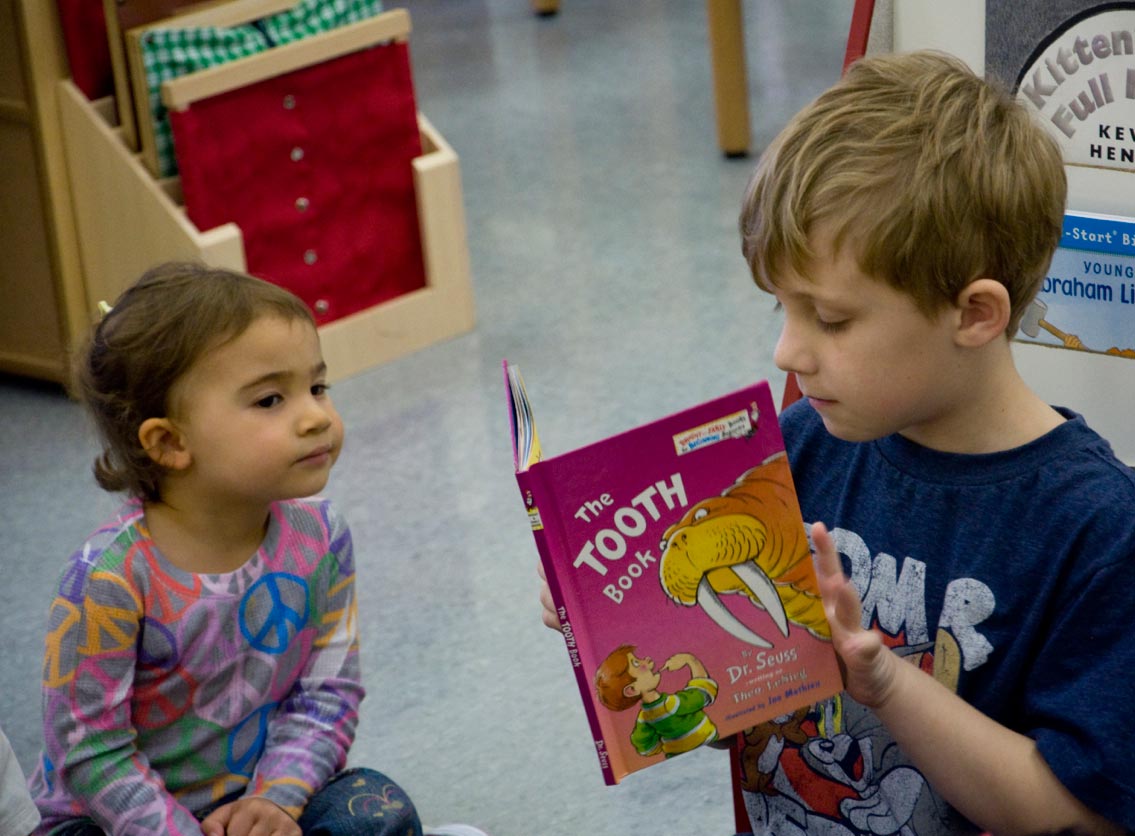
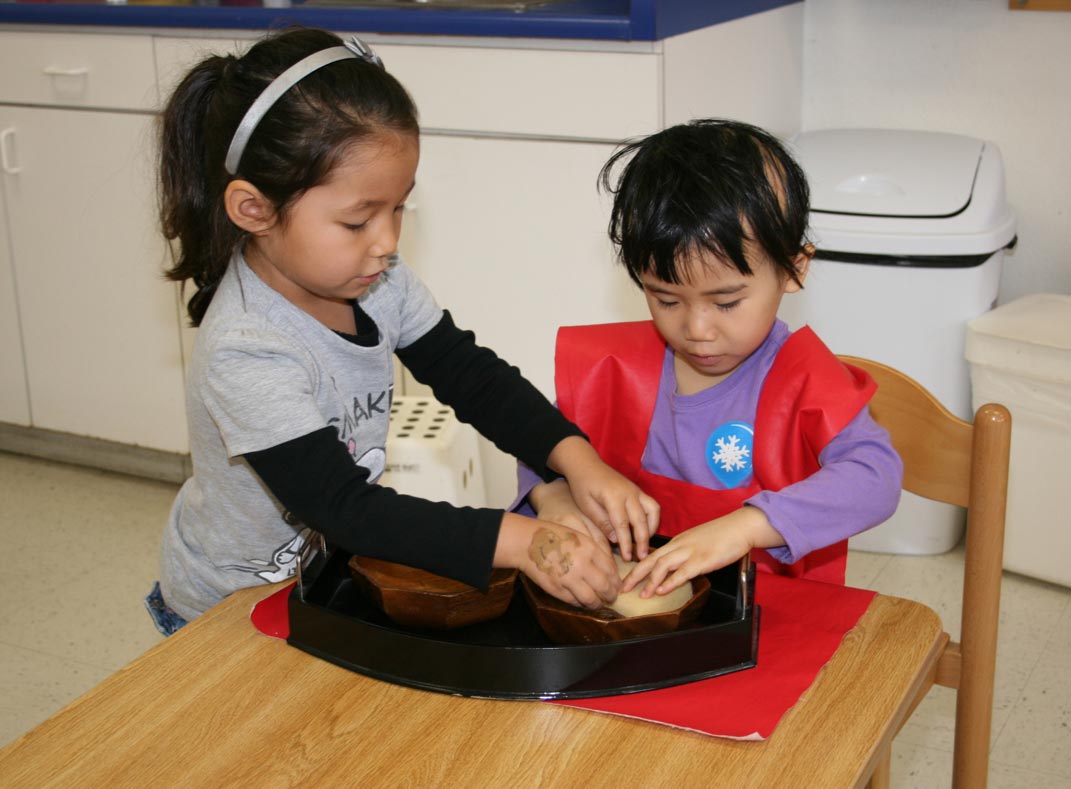
During the second week of school this year, one of our Heads of School shared this story: In one of her larger Montessori preschool classrooms, a 3-year-old girl was working on a Practical Life activity that involved spooning lentils from one bowl into another. Lentils had spilled all over the table, and the little girl looked as though she were about to cry. A 5-year-old boy who had been watching her from nearby then came to her side and helped her. He showed her how to pick up the spilled lentils. He showed her how to hold the spoon level when transferring the lentils, moving slowly, just like his teacher had shown him, two years ago. He stayed by the girl’s side, encouraging her in her work. Then, when she was done, he helped her put the activity away, demonstrating how to roll up the little mat and how to put the whole tray with the materials back properly in its spot on the shelf.
3rd year students in Montessori preschool naturally have many opportunities to become classroom leaders, and usually take them on eagerly. A teacher might ask a 3rd year to help welcome new friends to class or to give lessons to a younger peer. A 6-year-old might spontaneously read to a few younger preschool classmates, or even be asked by the teacher whether he’d like to read a book to the class at group time. Younger Montessori preschoolers naturally search out the 3rd years for help: when a teacher is busy with a lesson, it’s just as easy to ask your friend to help you with a tricky word on a command card or to assist you in tying a bow! And because the 3rd year student is so familiar with his classroom and has learned to value its beauty and order, he’s often the one who takes the initiative to tidy up or water a plant with limp leaves.
While accelerated academics are a great benefit of the third year of the Montessori preschool cycle, realize that your child is acquiring potentially far more powerful assets, whether you call them noncognitive skills, personality traits or character.

